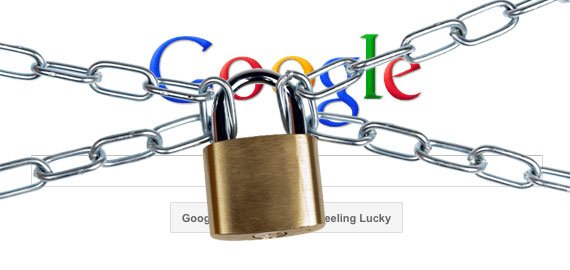
You thought you knew the Internet. But sites such as Facebook, Amazon, and Instagram are only the surface. There's an entire other world out there: the Deep Web.
It's a spot where online data is secret key secured, caught behind paywalls, or requires unique programming to get to—and it's gigantic. By a few evaluations, it is 500 times bigger than the surface Web that a great many people seek each day. However it's totally outside of anyone's ability to see. As per a study distributed in Nature, Google lists close to 16 percent of the surface Web and misses the greater part of the Deep Web. Any surrendered look turns only 0.03 percent of the data that exists online (one in 3,000 pages). It resembles angling in the main two feet of the sea—you miss the virtual Mariana Trench beneath.
A significant part of the Deep Web's unindexed material lies in commonplace databases, for example, LexisNexis or the moves of the U.S. Patent Office. In any case, similar to a Russian matryoshka doll, the Deep Web contains a further concealed world, a littler yet huge group where noxious performing artists join in like manner reason for sick. Welcome to the Dark Web, infrequently called the Darknet, a tremendous computerized underground where programmers, hoodlums, terrorists, and pedophiles come to carry out their specialty. What takes after is yet a superficial examining of the merchandise and administrations accessible from inside the darkest openings of the Internet.
Things You Can Buy
1. Drugs
Individual or merchant level amounts of illegal and physician endorsed medications of each sort are accessible in the computerized underground. The Silk Road, the now-covered medication superstore, did $200 million of business in 28 months.
2. Counterfeit Currency
Fake cash shifts generally in quality and expense, however euros, pounds, and yen are all accessible. Six hundred dollars gets you $2,500 in fake U.S. notes, guaranteed to pass the run of the mill pen and bright light tests.
3. Produced Papers
Visas, driver's licenses, citizenship papers, fake IDs, school recognitions, migration reports, and even political ID cards are accessible on unlawful commercial centers, for example, Onion Identity Services. A U.S. driver's permit costs around $200, while travel permits from the U.S. then again U.K. offer for a couple of thousand bucks.
4. Guns, Ammunition, and Explosives
Weapons, for example, handguns and C4 explosives are available on the Dark Web. Sellers dispatch their items in exceptionally protected bundles to keep away from x-beams or send weapons parts covered up in toys, musical instruments, or gadgets.
5. Hitmen
Administration suppliers—including a firm named for the H.P. Lovecraft beast C'thulhu—promote "changeless answers for regular issues." For everything from private hard feelings to political deaths, these enlisted firearms acknowledge bitcoin as installment and give photographic verification of the deed.
6. Human Organs
In the darker corners of the Dark Web, a dynamic and grim underground market for live organs flourishes. Kidneys may get $200,000, hearts $120,000, livers $150,000, and a couple of eyeballs $1,500.
Things That Make Internet Crime Work
1. Cryptocurrency
Computerized money, for example, bitcoin and darkcoin, and the installment framework Liberty Reserve give a helpful framework to clients to burn through cash online while keeping their genuine characters covered up.
2. Impenetrable Web-facilitating Services
Some Web has in spots, for example, Russia or Ukraine welcome all substance, make no endeavors to take in their clients' actual personalities, acknowledge unknown installments in bitcoin, and routinely disregard subpoena demands from law authorization.
3. Distributed computing
By facilitating their criminal malware with legitimate firms, programmers are a great deal more averse to see their movement hindered by security frameworks. A late study recommended that 16 percent of the world's malware and cyberattack circulation diverts started in the Amazon Cloud.
4. Crimeware
Less gifted lawbreakers can purchase every one of the instruments they have to recognize framework vulnerabilities, confer fraud, trade off servers, and take information. It was a programmer with simply such a toolbox who attacked Target's purpose of-offer framework in 2013.
5. Hackers For Hire
Sorted out cybercrime syndicates outsource programmers for-contract. China's Hidden Lynx bunch brags up to 100 expert cyberthieves, some of whom are known not infiltrated frameworks at Google, Adobe, and Lockheed Martin.
6. Multilingual Crime Call Centers
Representatives will assume any misleading part you might want, for example, giving occupation and instructive references, starting wire exchanges, and unblocking hacked accounts. Calls cost around $10.
How to Access the Dark Web’s Wares
Anonymizing Browser
Tor—short for The Onion Router—is one of a few programming programs that give a door to the Dark Web. Tor reroutes signals crosswise over 6,000 servers to conceal a page solicitation's beginning, making taps on illegal material almost outlandish for law authorization to follow. It utilizes mystery pages with .onion additions—instead of .com—which are just open with a Tor program.
Secret Search Engines
In mid-2014, a programmer made Grams, the Dark Web's initially dispersed internet searcher. Grams permits would-be lawbreakers to hunt down medications, firearms, and stolen ledgers over various concealed locales. It even incorporates an "I'm Feeling Lucky" catch and focused on advertisements where street pharmacists go after snaps.
Criminal Wikis
Deliberately sorted out wikis list concealed locales by classification, for example, Hacks, Markets, Viruses, and Drugs. Depictions of every connection help inquisitive newcomers locate their sought illegal things.
Hidden Chatrooms
Generally as in this present reality, online lawbreakers hoping to get the most felonious material must be vouched for before they can execute. A system of welcome just chatrooms and discussions, holed up behind unlisted alphanumeric Web addresses, gives access to the most criminal of circles.